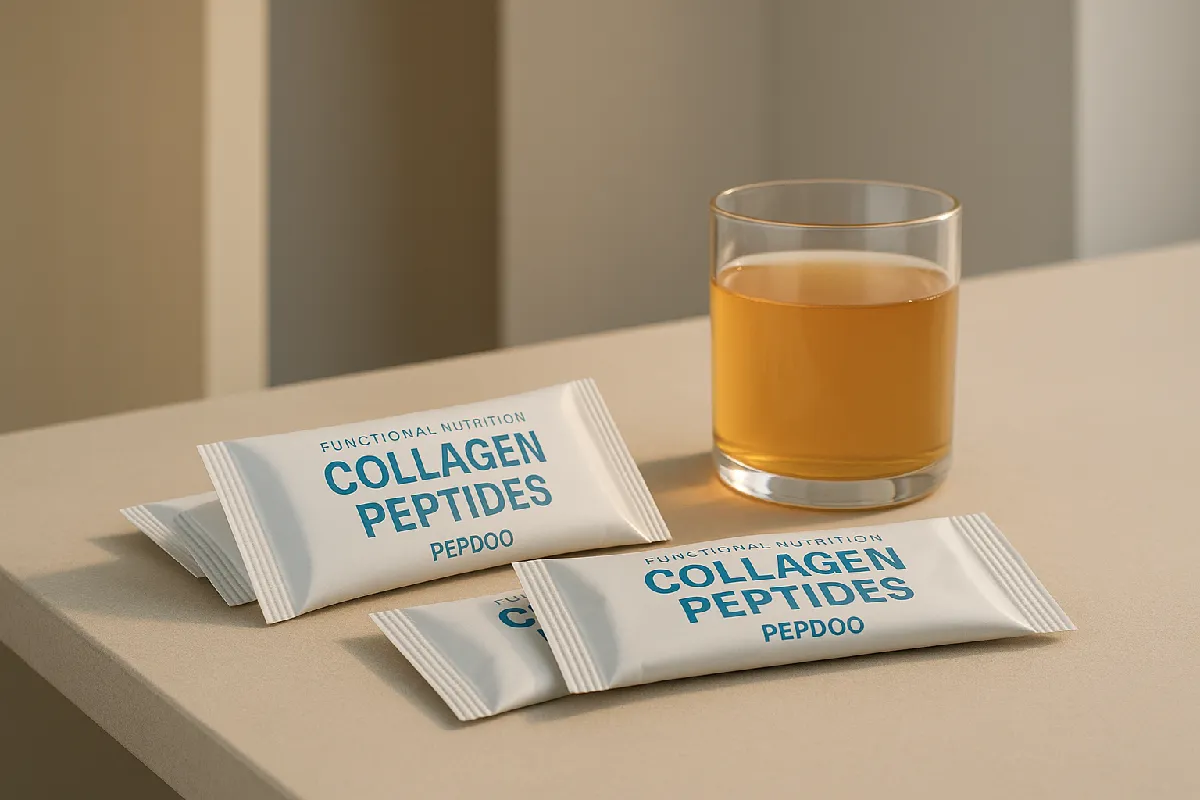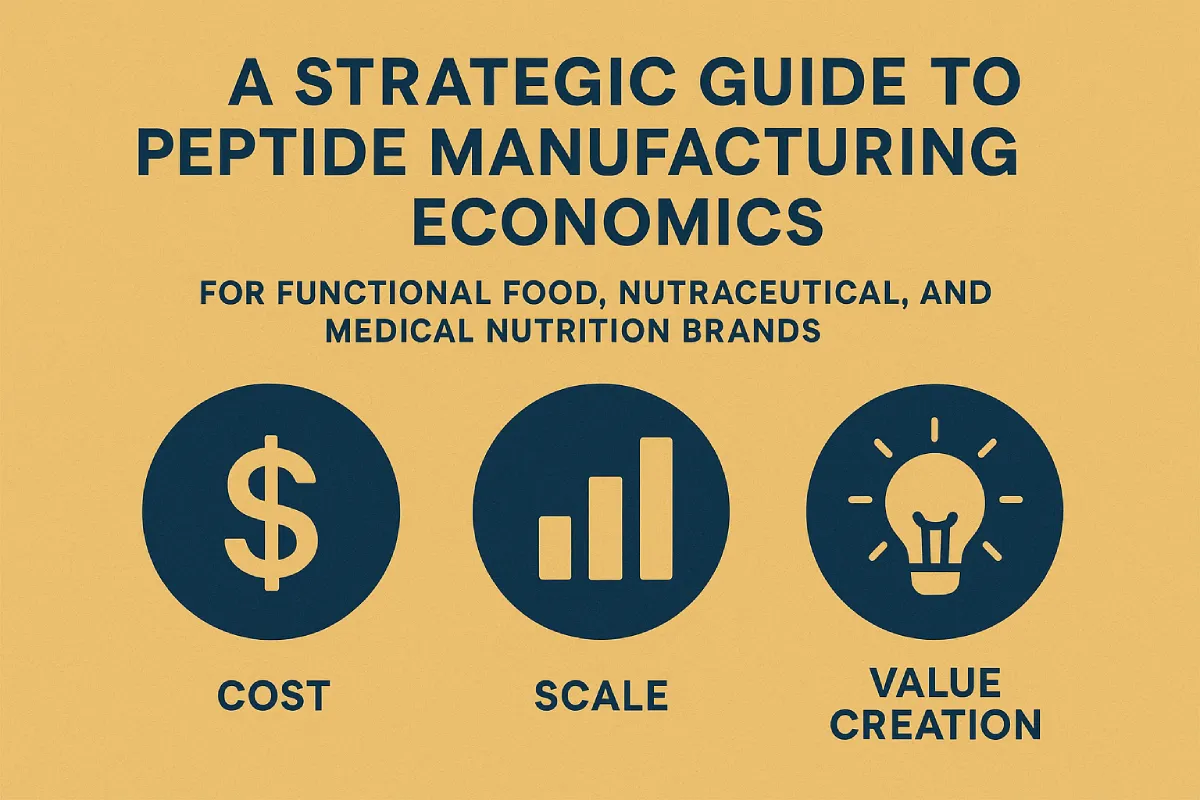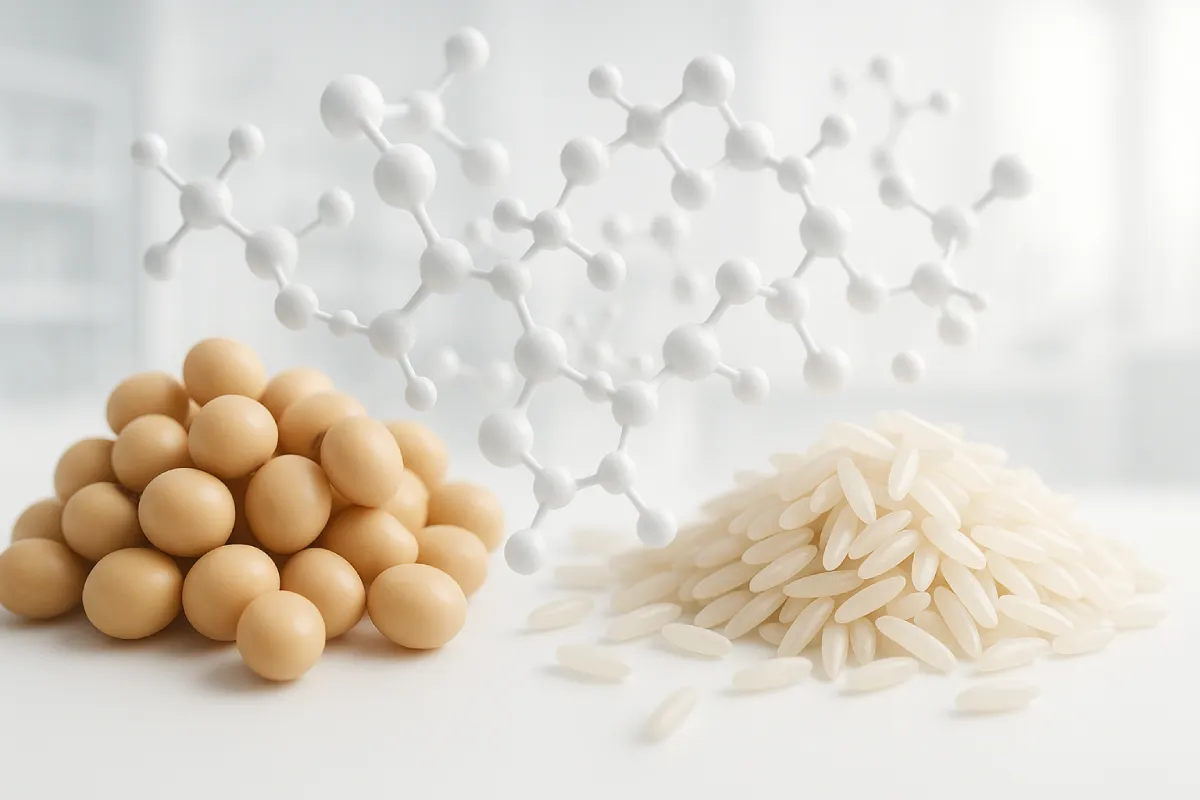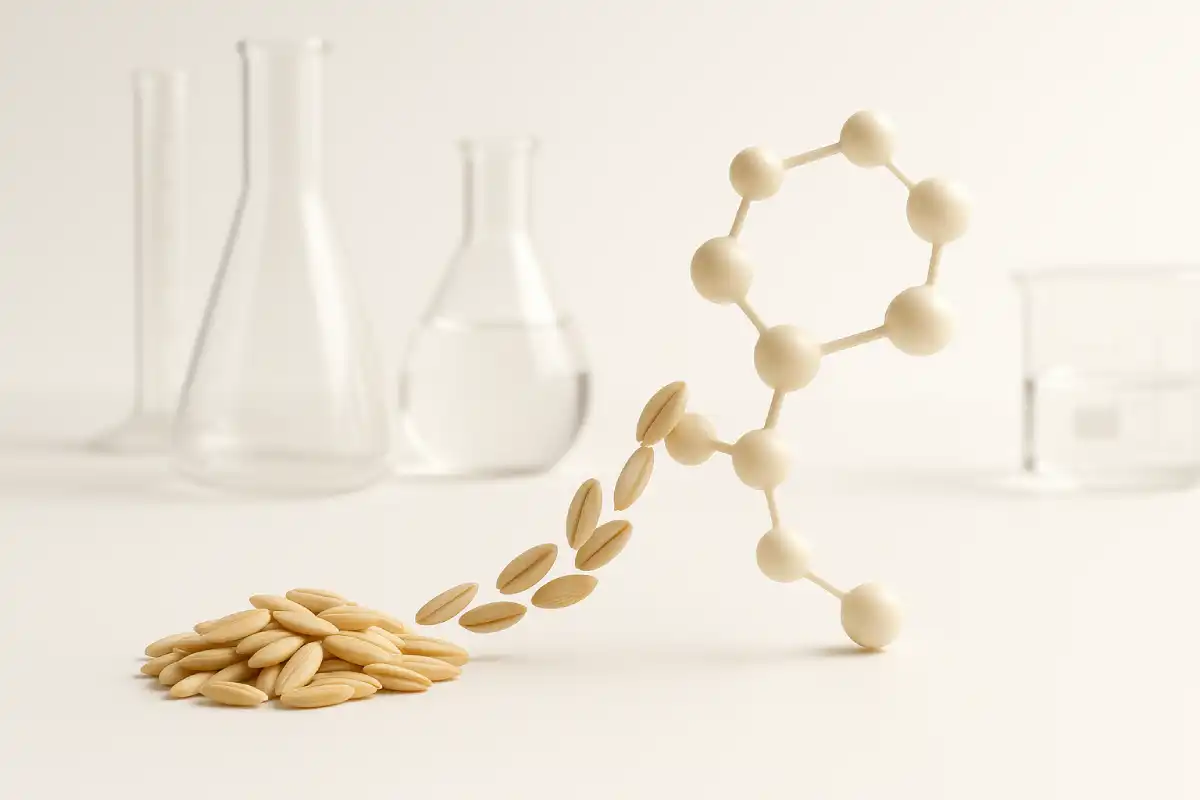A New Era in Sports Nutrition
In recent years, “active nutrition” has emerged as a defining trend in the sports and wellness industry. Athletes, fitness enthusiasts, and even everyday active individuals are no longer satisfied with traditional macronutrient supplementation; they are now demanding functional, scientifically backed ingredients that provide targeted benefits. Among these, peptide-based supplements are gaining prominence for their bioavailability, precision, and wide-ranging benefits [1].
This article explores why peptide-based supplements are becoming the go-to choice for athletes, the science behind their performance-enhancing properties, and what consumers expect from modern formulations.
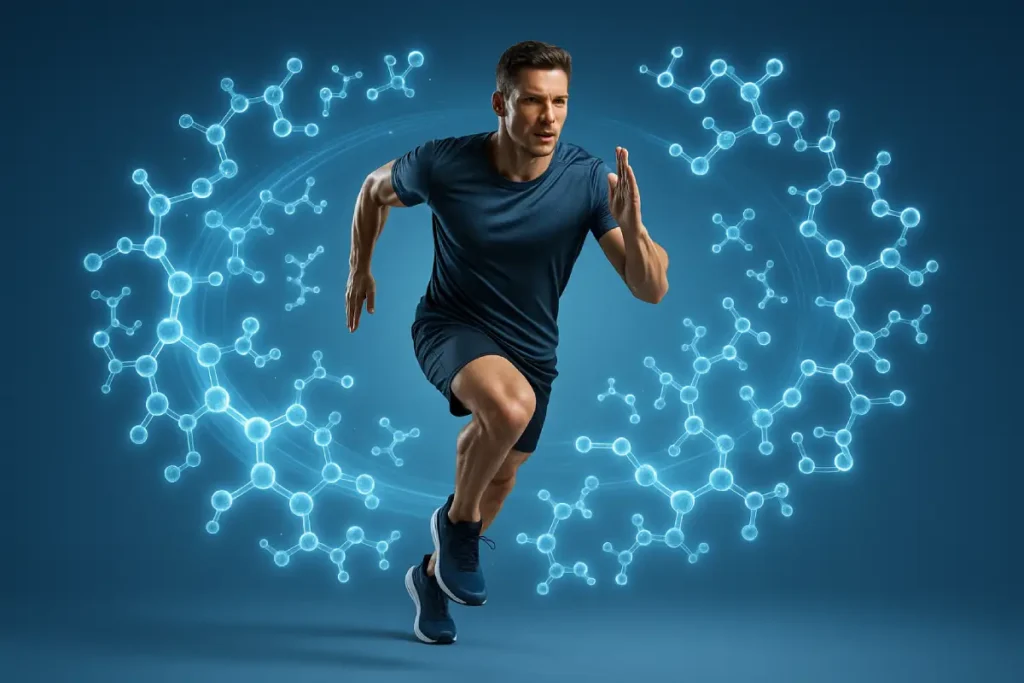
Evolving Needs in Athletic Nutrition
The expectations of athletes have evolved beyond calorie replacement and basic protein intake. Today’s athletes—whether they are endurance runners, bodybuilders, or recreational gym-goers—are looking for:
- Rapid muscle recovery
- Enhanced energy metabolism
- Improved immune function
- Reduced inflammation and soreness
- Gut-friendly formulations
There is also an increasing focus on clean-label, sustainably sourced, and science-driven nutrition solutions [2].
Why Peptides? A New Class of Functional Ingredients
Peptides are short chains of amino acids derived from the enzymatic hydrolysis of proteins. Unlike intact proteins, peptides are pre-digested, making them easier and faster to absorb in the gut [3]. This property allows them to exert their functional effects more quickly and efficiently.
Key advantages of peptides in active nutrition include:
- High bioavailability
- Targeted biological activity (e.g., anti-inflammatory, antioxidant, muscle repair)
- Compatibility with diverse delivery systems (beverages, powders, capsules)
Moreover, peptide supplements can be formulated from a variety of sources—whey, soy, collagen, egg, fish, and plant proteins—making them adaptable for a wide range of dietary preferences [4].
Popular Peptide Types in Active Nutrition
- Collagen peptides: Widely used for joint, skin, and connective tissue health.
- Whey-derived peptides: Known for fast absorption and muscle-building potential.
- Soy peptides: Offer antioxidant and anti-inflammatory benefits.
- Egg protein peptides: Rich in essential amino acids for recovery and lean mass.
Evidence-Based Benefits for Athletic Performance
1. Muscle Repair and Growth
Branched-chain amino acid (BCAA) peptides and collagen peptides have been shown to stimulate muscle protein synthesis and reduce muscle breakdown after exercise [5]. Collagen tripeptides, in particular, may support connective tissue regeneration, enhancing joint resilience in athletes undergoing high-impact training [6].
2. Enhanced Recovery
Peptides rich in leucine and glutamine can promote faster recovery by improving cellular hydration, supporting mitochondrial function, and reducing post-exercise soreness [7].
3. Immune Support
Strenuous training can temporarily suppress immune function. Certain immunomodulatory peptides help restore immune balance by stimulating natural killer (NK) cell activity and enhancing gut mucosal immunity [8].
4. Endurance and Energy Metabolism
Bioactive peptides influence energy pathways by modulating glucose uptake and mitochondrial efficiency. These functions can improve stamina and reduce fatigue during prolonged exercise [9].
Delivery Formats: What Athletes Really Want
Modern athletes expect convenience, taste, and efficacy. Peptide-based supplements meet these needs through flexible delivery options:
- Ready-to-drink (RTD) beverages for on-the-go convenience
- Instant powders that dissolve easily and can be taken pre/post-workout
- Softgels and capsules for minimal ingredient exposure
- Peptide-infused bars and snacks for functional snacking
Additionally, athletes look for transparent labeling (e.g., molecular weight ranges), clean ingredient decks (no artificial additives), and synergistic blends combining peptides with electrolytes, antioxidants, and adaptogens [10].
What Do Athletes Look for in a Peptide Supplement?
A recent survey of active consumers revealed several purchase drivers:
- “Clinically proven effectiveness” tops the list
- Preference for multi-functional benefits (e.g., joint + muscle + recovery)
- Demand for plant-based or marine-sourced peptides among vegan and pescatarian users
- High trust in products that carry third-party certifications like NSF Certified for Sport® or Informed-Sport®
Furthermore, word-of-mouth, social media influencer recommendations, and clear scientific communication significantly impact consumer decisions [11].
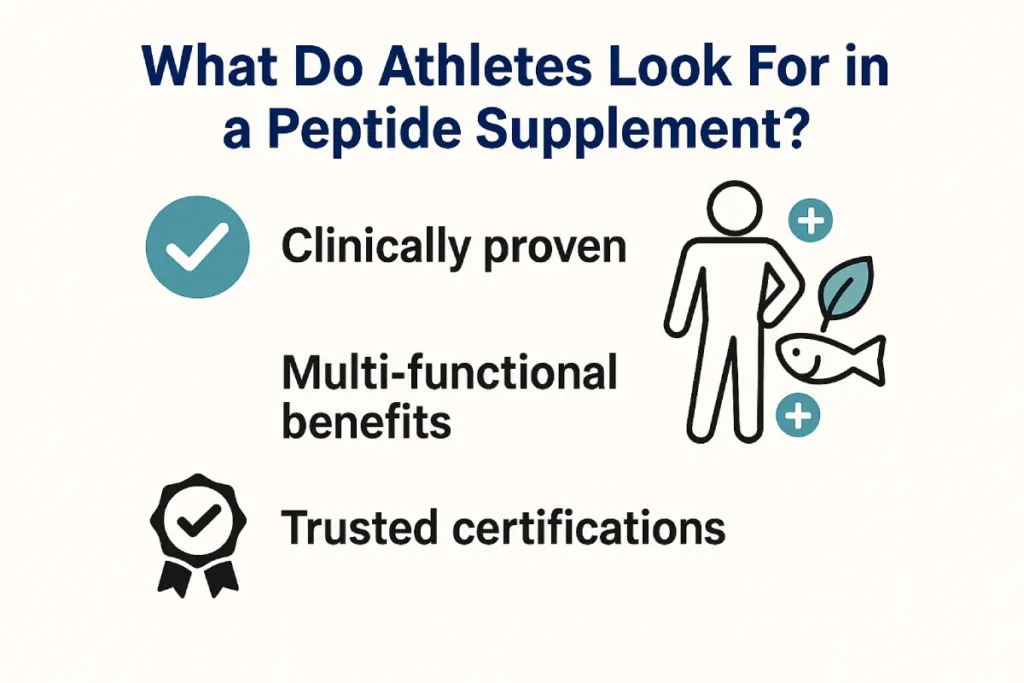
Clean Labels and Regulatory Confidence
Peptide-based supplements must meet the rigorous standards of sports nutrition compliance. In major markets like the U.S., EU, and Japan, peptide ingredients are subject to GRAS status, novel food approvals, or specific functional food regulations [12].
Clean label concerns—such as non-GMO, hormone-free, and allergen-free claims—are increasingly important, especially for professional athletes who undergo drug testing. Certifications like Informed-Choice or BSCG Drug Free offer peace of mind.
The Future of Peptides in Active Nutrition
Looking ahead, peptides are poised to become even more central in active nutrition, thanks to:
- AI-driven peptide discovery for highly specific functions
- Peptide-nutrient synergies (e.g., peptide + magnesium for muscle cramps)
- Integration into wearable-linked personalized nutrition systems
- Expansion into female-focused and senior athlete categories
Research is ongoing into the role of peptides in modulating gut-brain-muscle interactions, pointing to exciting developments in cognitive performance and mental resilience under physical stress [13].
Conclusion
As the line between sports nutrition and functional health blurs, peptide-based supplements are positioned at the forefront of innovation. Their fast absorption, targeted bioactivity, and versatile application make them an ideal choice for today’s performance-driven athletes.
For brands and formulators, the opportunity lies in creating clean, evidence-backed, and experiential peptide solutions that address the nuanced needs of the active consumer—whether they’re training for a marathon or simply living a high-performance life.
🔗 Call to Action: Partner with PEPDOO®
Looking to Launch or Upgrade Your Peptide-Based Product Line?
At PEPDOO®, we offer both premium functional peptide ingredients for export and full-service OEM customization for peptide-based supplements. Whether you’re a health brand seeking a science-backed formula, a distributor exploring next-generation sports nutrition solutions, or an innovation-driven manufacturer—we’re here to support your success.
- Clinically supported peptide ingredients
- Custom formulations tailored to your market needs
- Flexible packaging and branding solutions
- Global export-ready compliance
Let’s create market-winning products together.
👉 Contact us today to discuss how we can support your peptide innovation journey.
References
- Attele, A. S., Wu, J. A., & Yuan, C. S. (2002). Ginseng pharmacology: Multiple constituents and multiple actions. *Biochemical Pharmacology, 64*(5), 893-898.
- Kerksick, C. M., Wilborn, C. D., & Roberts, M. D. (2018). ISSN Exercise & Sport Nutrition Review update: Research and recommendations. *Journal of the International Society of Sports Nutrition, 15*(1), 38.
- Erdmann, K., Cheung, B. W. Y., & Schröder, H. (2010). The possible roles of food-derived bioactive peptides in reducing the risk of cardiovascular disease. *Journal of Nutritional Biochemistry, 21*(4), 261-268.
- Wang, W., & Mejia, E. G. (2019). A new frontier in soy bioactive peptides: Metabolomics profiling and potential health effects. *Journal of Agricultural and Food Chemistry, 67*(16), 4600-4610.
- Tipton, K. D., & Wolfe, R. R. (2001). Protein and amino acids for athletes. *The American Journal of Clinical Nutrition, 81*(1), 200-207.
- Zdzieblik, D., et al. (2015). Collagen peptide supplementation in combination with resistance training improves body composition and increases muscle strength in elderly sarcopenic men. *British Journal of Nutrition, 113*(5), 775-784.
- Jäger, R., et al. (2017). International Society of Sports Nutrition position stand: Protein and exercise. *Journal of the International Society of Sports Nutrition, 14*(1), 20.
- Vinderola, G., et al. (2019). Role of probiotics in functional food products for active lifestyle consumers. *Nutrition Reviews, 77*(4), 231-243.
- Kim, H., et al. (2017). Mitochondrial efficiency and endurance performance in relation to bioactive peptides. *Nutrients, 9*(8), 899.
- Rutherfurd-Markwick, K. J. (2016). Supplemental strategies for enhancing athletic performance. *Nutrition Reviews, 74*(11), 731-746.
- Nielsen Global Health & Wellness Survey. (2015). What’s in our food and on our mind. *The Nielsen Company*.
- EFSA Panel on Nutrition. (2020). Guidance on the scientific requirements for health claims related to muscle function. *EFSA Journal, 18*(12), 6173.
- Cheng, Y., et al. (2021). Peptides and brain-gut-muscle axis in physical performance. *Frontiers in Neuroscience, 15*, 678032.
FAQs
Yes, when sourced responsibly and verified by third-party testing, peptides are safe and often preferable due to their digestibility and low allergenicity.
Most peptides are best consumed post-workout for recovery, although some can be taken pre-workout for endurance or morning fasting windows for metabolic benefits.
Yes, many peptides (especially BCAA- and collagen-derived) stimulate muscle protein synthesis and aid in recovery.
Absolutely. Soy, pea, rice, and even oat peptides offer excellent functional and nutritional profiles.
Peptides are hydrolyzed protein fragments—smaller, faster-absorbing, and more functionally targeted than whole protein powders.


